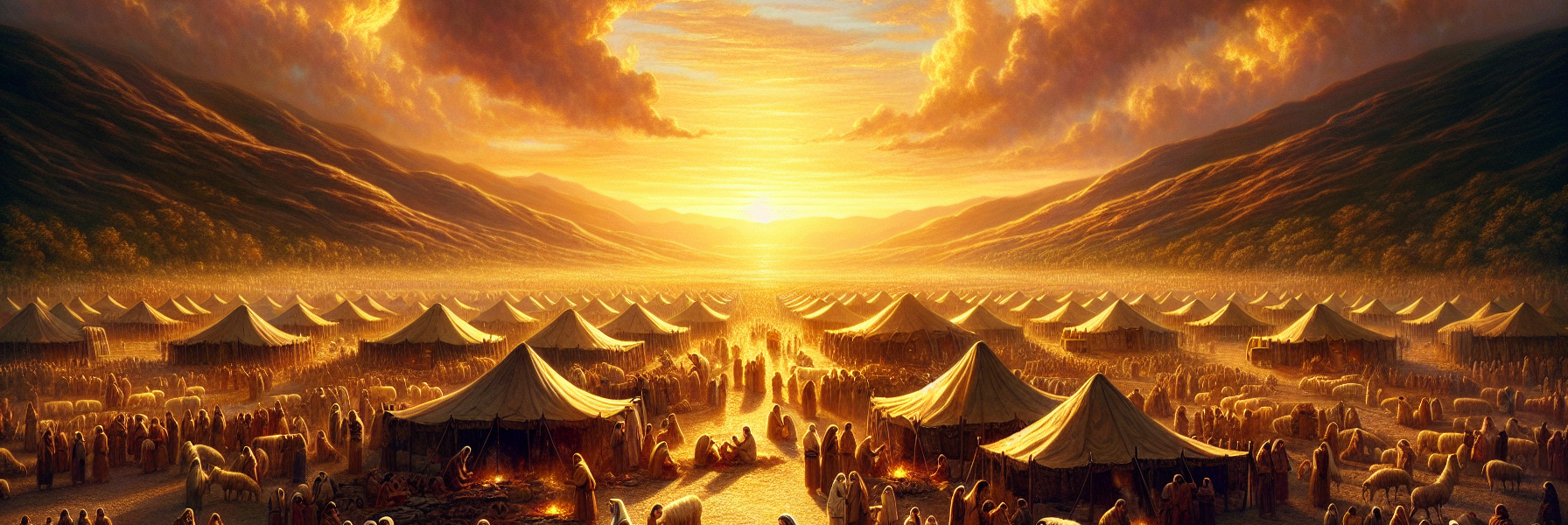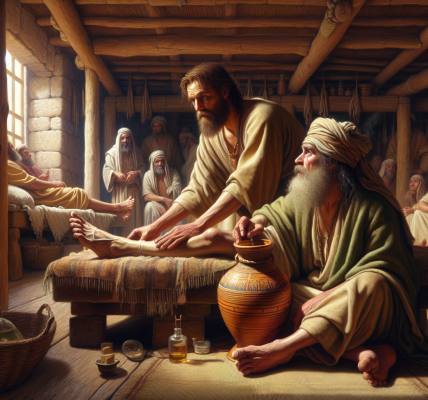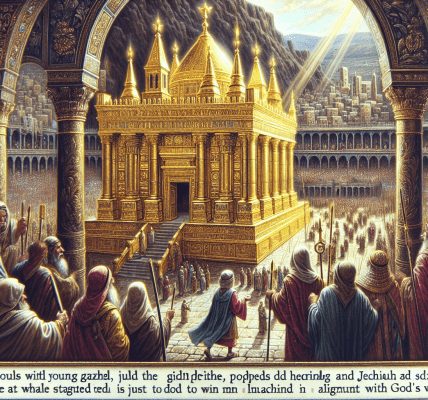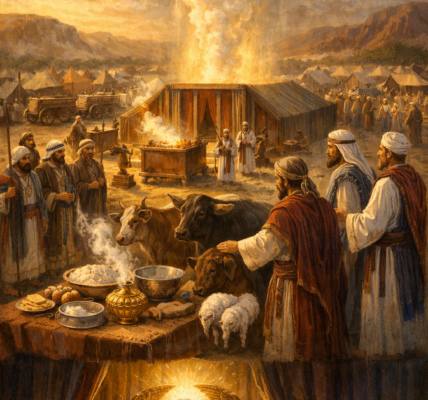**The Offering of Peace: A Story of Gratitude and Fellowship**
The sun hung low over the wilderness, casting golden light across the Israelite camp. The air was thick with the scent of burning fat and roasting meat, mingling with the earthy aroma of the Tabernacle courtyard. The people of Israel had gathered, not in fear or mourning, but in joyful reverence, for today was a day of thanksgiving—a day to present the peace offering before the Lord.
Among the crowd was a man named Eliezer, a shepherd from the tribe of Judah. For weeks, he had carried a burden in his heart—his wife, Miriam, had been gravely ill, and he had pleaded with the Lord for her healing. When her fever broke and strength returned to her limbs, Eliezer knew what he must do. He selected the finest ram from his flock, one without blemish, its fleece thick and pure white. This animal would be his peace offering, a sacrifice of gratitude to the God who had heard his cry.
### **The Preparation of the Sacrifice**
Eliezer led the ram to the entrance of the Tabernacle, where the priests stood in their linen garments, ready to perform the sacred rites. The animal was calm, as if sensing the holiness of the moment. With steady hands, Eliezer placed his palm upon the ram’s head, transferring his thanksgiving and devotion onto the creature. Then, with a swift and merciful stroke, the priest ended its life, catching the blood in a bronze basin.
The blood was dashed against the sides of the bronze altar, a solemn reminder that life belonged to the Lord. The fat that covered the entrails, the rich lobe of the liver, and the two kidneys with their fat—all these were carefully removed and laid upon the altar. The flames leaped hungrily, consuming the choice portions, sending sweet-smelling smoke heavenward as a pleasing aroma to the Lord.
### **The Feast of Fellowship**
But unlike the burnt offering, which was wholly given to God, the peace offering was different. This sacrifice was not only for atonement but for fellowship—a shared meal between the Lord, the priests, and the one who brought the offering.
Eliezer watched as the priest set aside the right thigh as a wave offering, lifting it toward heaven before adding it to the priests’ portion. The breast, too, was reserved, waved before the Lord and then given to Aaron and his sons. These were holy portions, a perpetual due for the priests who served before the Lord.
Then came the moment of joy—the remainder of the ram was returned to Eliezer. His family, his friends, even the Levites who had no inheritance of land, were invited to share in this sacred feast. But there were rules—strict and clear. The meat must be eaten that day or the next; none could remain until the third day, lest it become unclean. To disregard this was to profane the holy gift and risk being cut off from the people.
### **A Celebration of God’s Goodness**
That evening, Eliezer’s tent was filled with laughter and song. Neighbors gathered, their faces glowing in the firelight as they ate the tender, roasted meat. Miriam, now restored to health, served bread made without leaven, a symbol of sincerity and truth. The children listened wide-eyed as Eliezer recounted God’s mercy, how He had answered their prayers.
Around them, throughout the camp, other families did the same. Some offered peace offerings for vows they had fulfilled, others as freewill offerings, spontaneous acts of love for their Creator. The Tabernacle courtyard had been busy all day with such sacrifices, each one a testimony of faith, gratitude, and communion with the Almighty.
### **A Holy Reminder**
As the feast drew to a close, Eliezer paused, looking toward the Tabernacle, where the glow of the altar fire still burned. He remembered the words of Moses: *”The peace offering is most holy. It is the Lord’s.”* This was no ordinary meal—it was a covenant feast, a foretaste of the fellowship God desired with His people.
And so, with a full heart, Eliezer gave thanks once more—not only for Miriam’s healing, but for the God who dwelled among them, who welcomed their offerings and their praise. The peace offering was more than ritual; it was a gift of relationship, a divine invitation to draw near and rejoice in the presence of the Lord.
And in the quiet of the night, under a sky ablaze with stars, the people of Israel rested, knowing that their God was with them.




